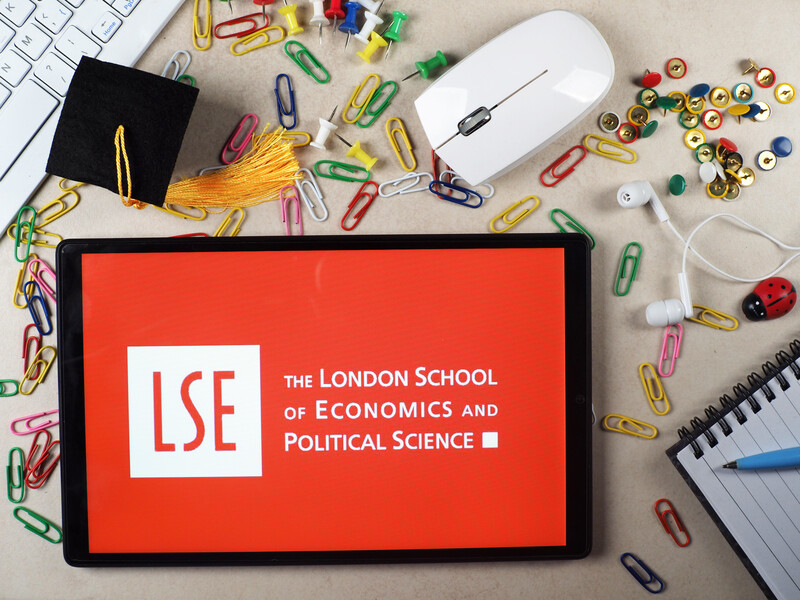Lobby Watch 4 August 2024

The London School of Economics has acknowledged it discriminated against a professor based on his anti-Zionist views.
ZUMA PressThe London School of Economics has admitted it discriminated against a professor based on his opposition to Israel’s state ideology Zionism.
In November last year, the LSE’s British Politics and Policy blog rejected an article by James Hughes, who has taught at the university since 1994.
The piece referred to the strong connections between the Conservatives, then Britain’s ruling party, and the pro-Israel lobby. The pressure group Conservative Friends of Israel was supported by most lawmakers in the party, it noted.
“The expansion of that lobby has been nurtured by Israel over recent years,” Hughes stated. “This explains the almost unanimous pro-Israel positioning of the current Conservative government and its mirroring of the policy of the Israeli state itself by fusing criticism of the Israeli state with anti-Semitism, and attempts to ban anti-Israeli political expression.”
After the article was censored by the LSE, it was published by The Electronic Intifada.
As the editor handling its publication, I contacted the LSE seeking an explanation for why the piece had been rejected.
A spokesperson replied at that time by alleging that Hughes’ piece “did not meet the blog’s editorial guidelines.”
The LSE has now sent The Electronic Intifada a fresh statement retracting that accusation. The LSE accepted that the comments provided in November last “could have been viewed as misleading.”
The retraction follows a grievance procedure initiated by Hughes.
“An internal LSE grievance panel found that there were shortcomings on the School’s side in relation to editorial processes in this case, and in the way that the School engaged with the grievance panel itself,” the spokesperson said. “The grievance panel found that Professor Hughes was a victim of discrimination on grounds of his anti-Zionist philosophical beliefs.”
As well as acknowledging that “mistakes were made,” the spokesperson stated that “we at LSE sincerely apologize to Professor James Hughes” for the fact his article was turned down by the British Politics and Policy blog.
The article was finally published by that blog on 31 July, along with an apology to Hughes.
Challenge censorship
Asked for a comment, Hughes said, “LSE is a leading global university. This case of discrimination against me for articulating my academic expertise in a way that reflected criticism of Israel and of its supporters in the British political elite has taken eight months to resolve.”
Although he noted that the case had been settled on “confidential terms,” he added, “One of the lessons to be drawn from my experience of discrimination at LSE is that academics should not be deterred by university administrators or other academics who attempt to censor legitimate criticism of Israel. Rather, efforts to censor anti-Zionism in universities and elsewhere must be robustly challenged.”
The principle that anti-Zionist philosophical beliefs should be protected in the workplace was affirmed by a British employment tribunal earlier this year.
The precedent was set in a case taken by David Miller against the University of Bristol.
Miller was fired from his post as a sociology professor by that university in 2021, following complaints by pro-Israel advocates over his research on Zionism. In February 2024, an employment tribunal ruled that Miller had been dismissed unlawfully.
Zionism, it should be recalled, is the ideology underpinning the dispossession of Palestinians, including the genocide now being carried out in Gaza.
In an article for The New Arab, the historian Ilan Pappe argues that “the root of the violence in Palestine is the evolvement of Zionism in the late 19th century into a settler colonial project.”
“Like previous settler colonial projects, the main violent impulse of the movement – and later the state [Israel] that was established – was and is to eliminate the native population,” Pappe writes. “When elimination is not achieved by violence, the solution is always to use more extraordinary violence.”
As Zionism is fundamentally aggressive and racist, speaking out against it is a duty for people of conscience throughout the world.






Comments
when challenged, they backed down
Permalink tom hall replied on
Here we have another example of the Electronic Intifada making a difference. It was only after EI published Professor Hughes' article, that the rationale for the suppression of that scholarly text by the LSE began to unravel. Congratulations to James Hughes for persisting in this matter, and thanks to David Cronin for not only publishing the article but questioning the process by which censorship was imposed.
Hughes victory against zionist censorship at LSE
Permalink Diarmuid Breatnach replied on
well done to Miller and Hughes for toughing and fighting it out. One can't help wondering how many other examples of Zionist bias are being inflicted on people we don't hear about.